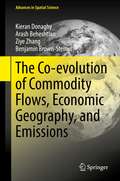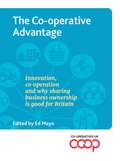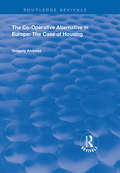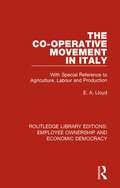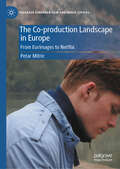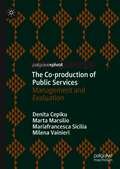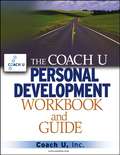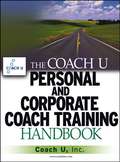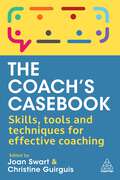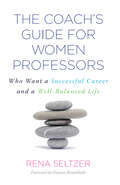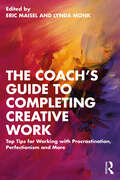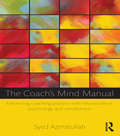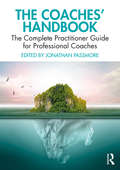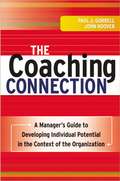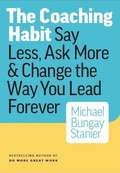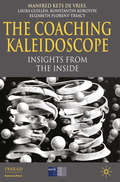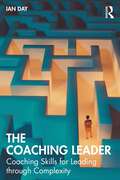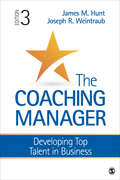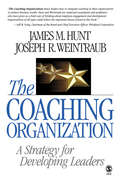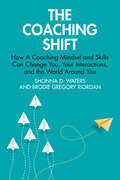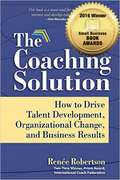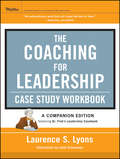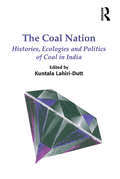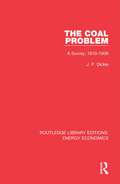- Table View
- List View
The Co-evolution of Commodity Flows, Economic Geography, and Emissions (Advances in Spatial Science)
by Kieran Donaghy Arash Beheshtian Ziye Zhang Benjamin Brown-SteinerThis book presents extensions to current commodity-flow models to analyze the economic and environmental impacts of recent structural changes, such as fragmentation of production and lengthening supply chains. The extensions enable augmented commodity-flow models to analyze the vulnerability of supply chains and regions to climate change and extreme weather events. The models allow the explicit treatment of trade in intermediate goods; the so-called “new economic geography” behavioral foundations for production and inter-industry and interregional trade; endogenous determination of capital investment and employment; and changes in emissions associated with production, consumption and freight movement. Presenting a modeling framework and simulations that are based on a thirty-year, spatial time-series of inter-industry and interstate trade in the US, this unique book is a valuable resource for regional scientists, economic geographers and transportation modelers, as well as environmental and atmospheric scientists.
The Co-operative Advantage
by Edited by Ed MayoIn the wake of the traditional economy, new forms of production are emerging that are characterised by permanent innovation. A multitude of small-scale innovations are down payments on larger transformative possibilities. We can now develop systems of co-operative advantage with small and medium-sized firms to spread innovation. In doing so, we can radically transform the character of education, to be analytical, not informative and to embrace co-operation. We aim not for a marginal increase of equality, but the achievement of a larger life.
The Co-operative Alternative in Europe: The Case of Housing (Routledge Revivals)
by Gregory AndruszFirst published in 1999, this book attempts to understand housing co-operatives in terms of their development over time and their relationships to other types of housing tenure. The book considers them within the framework of the broader co-operative movement and its role in society's overall system of production and exchange. There is an examination of the role of a form of ownership which is neither "private", nor "state" in six countries, and in some cases the fortunes of housing co-operatives seem closely to correlate with periods of political liberalization and crises, heralding a shift in ideological orientation.
The Co-operative Movement in Italy: With Special Reference to Agriculture, Labour and Production (Routledge Library Editions: Employee Ownership and Economic Democracy #4)
by E. A. LloydThis title, originally published in 1925, provides a scientific exploration of some of the forms of co-operative organisation which had attained considerable development in other countries, but were little known to English students of the movement. This account of the co-operative movement in Italy will be of interest to students of economic democracy and economic history.
The Co-production Landscape in Europe: From Eurimages to Netflix (Palgrave European Film and Media Studies)
by Petar MitricThis book explores the evolving landscape of European film and television co-productions, from traditional models supported by Eurimages to new collaborations shaped by global streaming platforms like Netflix. It examines how European co-production policies have influenced industry practices, funding structures, and audience engagement, balancing artistic, economic, and cultural priorities. Through historical analysis, case studies, and stakeholder perspectives – including policymakers, industry professionals, and audiences – this book offers fresh insights into the challenges and opportunities facing European audiovisual production today. It is essential reading for scholars, industry professionals, and policymakers interested in transnational media, cultural policy, and the future of European cinema.
The Co-production of Public Services: Management and Evaluation
by Mariafrancesca Sicilia Denita Cepiku Marta Marsilio Milena Vainieri"This book provides an excellent guide to the current literature on co-production, with especially valuable attention to its management and evaluation. By highlighting the lessons from co-production in the private sector, the authors give very useful and timely new insights into how co-production can contribute to public services and help to improve public value.”— Tony Bovaird, Professor of Public Management and Policy (Emeritus), University of Birmingham, UKCoproduction covers the practice in which state actors (for example, government agents) and lay actors (for example, members of the public) work together in any phase of the public service cycle. In the past two decades, the literature of coproduction has grown swiftly, but in a fragmented manner. Thus, this book systematizes the literature on coproduction into a comprehensive framework that tackles activation, management and evaluation, illustrated through empirical examples. It adopts a multi-disciplinary approach, analyzing literature streams such as public administration and policy, public management, business management, and marketing, among others. It will be invaluable reading for academics working on coproduction, public management, and business management.
The Coach U Personal Development Workbook and Guide
by Coachinc. Com StaffGet this hands-on training guide to help you launch your coaching career. The Coach U Personal Development Workbook and Guide provides you with the tools you need to build your personal foundation -- preparing yourself to successfully coach others. The detailed and flexible self-assessment lesson plans allow you to set your own pace while engaging in a continuous process of self-awareness and self-improvement. Thousands of people who have completed the personal foundation module have found it helps them to develop the critical tools necessary to become a truly effective and successful coach. As personal and professional coaching continues to prove its benefits to businesses and individuals, Coach U, Inc. , through its Coach U and Corporate Coach U divisions, remains the recognized leader for professional coach training and certification. Founded in 1988, Coach U, Inc. , is the largest provider of online training for individuals interested in entering the fields of personal and professional coaching. Coach U, Inc. , has educated more than ten thousand people, providing them the information, tools, and knowledge they need to successfully enter the fast-growing world of life, career, business, and corporate coaching.
The Coach U Personal and Corporate Coach Training Handbook
by Coachinc. Com StaffThe Most Comprehensive TrainingTool for New and Experienced Coaches Founded in 1988, Coach U, Inc. , is the largest provider of online training for individuals interested in entering the fields of personal and professional coaching. Coach U, Inc. , has educated more than ten thousand people, providing them the information, tools, and knowledge they need to successfully enter the fast-growing world of life, career, business, and corporate coaching. Now, for the first time, Coach U, Inc. , is making its complete course materials available in book form. These provide the basic foundations and training necessary to allow you to take control of your own career; enjoy personal, professional, and financial success; and experience the fulfillment that goes with providing a meaningful service to others. Coach U, Inc. 's unique approach to training encompasses the entire development of the professional coach. From the beginnings of becoming a coach, to all the ins-and-outs of growing a successful coaching practice, this program provides a comprehensive, step-by-step approach to learning how to become a strong, ethical, and dynamic leader in the coaching field. The Coach U Personal and Corporate Coach Training Handbook is the only comprehensive handbook currently available that provides step-by-step training for individuals seeking preparation and certification as a personal or corporate coach. Using the proven Coach U method, this book draws on a multidisciplinary approach to present a complete guide to the business and practice of personal and corporate coaching. This helpful text features: * Detailed coverage of the core skills and methodologies employed in personal and corporate coaching, including a chapter on ethics * Includes coaching scenarios and case studies that demonstrate skills in action * Chapters on marketing and selling your coaching practice and services as well as guidance on practice management As personal and professional coaching continues to prove its benefits to businesses and individuals, Coach U, Inc. , through its Coach U and Corporate Coach U divisions, remains the recognized leader for professional coach training and certification.
The Coach's Casebook: Skills, Tools and Techniques for Effective Coaching
by Joan Swart and Christine GuirguisWhat skills do I need to craft clear and effective coaching questions? How do I set goals for my clients? What do I need to be aware of when coaching with different personalities and facing mental health conditions? The Coach's Casebook answers these questions and provides coaches with a thorough grounding in the knowledge, competencies, tools and techniques they need to coach employees to reach their full potential. This book also explains how these coaching tools and techniques apply in practice to boost personal development, performance and wellbeing.There is extensive coverage of how to apply coaching interventions to manage work-life balance and prevent burnout at work and at home, and how to combine coaching and mindfulness as well as how to encourage clients to develop a growth mindset and reframe imposter syndrome. Specific guidance on active listening, coaching high-performers and those with high-potential, leadership coaching, coaching minorities and underrepresented groups and how to coach challenging personalities is also given. This practical guide, is supported by case studies and scenarios throughout taking from real-life coaching, is for those new to coaching and those in the intermediate stages of their career. The Coach's Casebook contains everything needed to allow clients to flourish.
The Coach's Guide for Women Professors: Who Want a Successful Career and a Well-Balanced Life
by Rena SeltzerIf you find yourself thinking or saying any of the following, this is a book you need to pick up.I know or suspect that I am underpaid, but I hate negotiating. I do everything else first and then write in the time left over.I’m not sure exactly what the promotion requirements are in my department.Since earning tenure, my service load has increased and my research is suffering. I don’t get enough time with my family.This is a practical guide for women in academe – whether adjuncts, professors or administrators – who often encounter barriers and hostility, especially women of color, and generally carry a heavier load of service, as well as household and care responsibilities, than their male colleagues. Rena Seltzer, a respected life coach and trainer who has worked with women professors and academic leaders for many years, offers succinct advice on how you can prioritize the multiplicity of demands on your life, negotiate better, create support networks, and move your career forward. Using telling but disguised vignettes of the experiences of women she has mentored, Rena Seltzer offers insights and strategies for managing the situations that all women face – such as challenges to their authority – while also paying attention to how they often play out differently for Latinas, Black and Asian women. She covers issues that arise from early career to senior administrator positions. This is a book you can read cover to cover or dip into as you encounter concerns about time management; your authority and influence; work/life balance; problems with teaching; leadership; negotiating better; finding time to write; developing your networks and social support; or navigating tenure and promotion and your career beyond.
The Coach's Guide to Completing Creative Work: Top Tips for Working with Procrastination, Perfectionism and More
by Eric Maisel Lynda MonkThis book brings together 38 creativity coaches from around the world to offer coaches, therapists, creatives and clients accessible and practical tools to get their creative work done. Curated by two leading creativity coaches, these chapters seek to help coaches and clients alike tackle common challenges that all creatives face when finishing a project. Chapters cover topics such as procrastination, failure, accountability, perfectionism, mindfulness, the importance of support, perseverance and more, with each section finishing with tips for both clients and coaches that can be used in sessions. Filled with rich case studies and true stories from creativity coaches throughout, this book addresses the current issues of our times, such as the distractions of social media, remote working and the effects of the COVID-19 pandemic. Applicable to a range of creative disciplines, this book is essential reading for coaches, therapists and their creative clients looking to complete their creative work efficiently and effectively.
The Coach's Mind Manual: Enhancing coaching practice with neuroscience, psychology and mindfulness
by Syed AzmatullahThe Coach’s Mind Manual combines the latest findings from neuroscience, psychology, and mindfulness research to provide an accessible framework to help coaches and leadership development specialists improve their awareness of the mind, enhancing their coaching practice. Syed Azmatullah explains how such knowledge can be used to guide clients on a journey of self-discovery, facilitating transformational changes and enriching their performance and personal lives. Part One considers the mind’s management committee, the cerebral cortex, and how its contrasting functions can be accessed to improve problem solving skills. Part Two considers the mind’s middle management, the limbic system, balancing executive direction with our social and emotional needs, driving motivation around core values. Part Three examines how the environment, via the body, influences our mental infrastructure at various stages in life, guiding the selection of interventions. Part Four looks at interpersonal dynamics and how to maximise team performance. Part Five considers the power of collaboration for generating the culture needed to improve the sustainability of our global community. Each section contains self-reflection exercises and experiential role-play to help clients derive benefit from their new personal insights. Coaches are encouraged to combine the broad range of concepts presented with their own experience, creating a contextually-driven coaching process. By focusing on the mind as the target for coaching interventions Azmatullah establishes a comprehensive framework for achieving transformational change. The Coach’s Mind Manual is ideal for all professionals engaged in adult development including executive coaches, business coaches, human resource development professionals, leadership development professionals, management consultants and organisational development professionals.
The Coaches' Handbook: The Complete Practitioner Guide for Professional Coaches (Wiley-blackwell Handbooks In Organizational Psychology Ser.)
by Jonathan PassmoreThis comprehensive practitioner guide provides an accessible evidenced based approach aimed at those new to coaching and who may be undertaking coach training for a certificate in coaching or professional credentials or accreditation with the AC, ICF, EMCC, CMI or ILM. The book will also be useful for those who want to enhance their coaching skills. The Coaches Handbook is edited by Jonathan Passmore, an internationally respected expert and executive coach, with chapters from leading coaching practitioners from across the world. The book is divided into seven sections. Section one examines the nature of coaching, its boundaries, the business case for coaching and how organisations can build a coaching culture. Section two focuses on deepening our self-understanding and understanding our clients, the non-violent communications mindset and the coaching relationship. Section three focuses on the key skills needed for coaching including goal setting, powerful questions, active listening, using direct communications and the role of silence, emotions and challenge in coaching. Section four offers a range of coaching approaches including behavioural, person-centred, solution-focused, psychodynamic, neuroscience, narrative, positive psychology, out-door eco-coaching, team coaching, careers coaching and integrated coaching. Section five focuses on fundamental issues in coaching such as ethics and contracting and evaluation. Section six explores continuous professional development, reflection and the role of supervision, as well as how to establish your coaching business. The final section contains a host of coaching tools which practitioners can use to broaden their practice. Unique in its scope, this key text will be essential reading for coaches, academics and students of coaching. It is an important text for anyone seeking to understand the best practice approaches that can be applied to their coaching practice, including human resources, learning and development and management professionals, and executives in a coaching role.
The Coaching Connection: A Manager's Guide to Developing Individual Potential in the Context of the Organization
by John Hoover Paul GorrellTraditional coaching methods have focused entirely on the individual--sometimes even at the expense of improving measurable business results for the company. Now, authors John Hoover and Paul J. Gorrell, both notable leaders and talent experts, show managers how they can use contextual coaching to ensure both individuals and organizations experience the highest probability for success. Contextual coaching uses a dual-focus systems approach to align coaching processes with the strategies, cultural imperatives, talent management systems, communication practices, and competency requirements of an entire organization. The Coaching Connection teaches readers how to apply this methodology by taking all of these factors into consideration within their own organizational context. When coaching initiatives are successful, individual and organizational interests become one. Including a 360-degree assessment covering the ten most essential skill sets of well-balanced and effective leaders, as well as systems for measuring and managing talent, The Coaching Connection helps companies improve both their people--and their bottom line results.
The Coaching Habit: Say Less, Ask More & Change the Way You Lead Forever
by 978-0-9784407-4-9A fresh innovative take on the traditional how-to manual, the book combines insider information with research based in neuroscience and behavioural economics, together with interactive training tools to turn practical advice into practiced habits. Witty and conversational.
The Coaching Kaleidoscope
by Elizabeth Florent-Treacy Manfred Kets De Vries Laura Guillen Konstantin KorotovThrough sharing the research methodologies, and describing intervention and change techniques used in leadership development, this book, written by IGLC-INSEAD professors and leadership coaches, contributes to a better understanding of how organizations may go beyond coaching in order to create best places to work.
The Coaching Leader: Coaching Skills for Leading through Complexity
by Ian DayThe Coaching Leader: Coaching Skills for Leading through Complexity sets out a new approach to leadership by synthesizing coaching skills, leadership theory, and practice.This approach enables the Coaching Leader to make a crucial difference to individuals and organizations in the current socio-economic climate. This book details the 'why,' 'what,' and 'how' of being a Coaching Leader and presents a business case for leadership which constantly evolves to match the needs of the context. This book explores alternative leadership theories including adaptive leadership, servant leadership, and the humble leader. Readers are given the tools to develop the mindset and skills to support practical approaches to leadership theories in the workplace and develop a reflective self-awareness.This book is ideal for those studying leadership or coaching at a postgraduate level, MBA students, or organizational leaders looking to improve their leadership skills for greater impact.
The Coaching Manager: Developing Top Talent in Business
by James M. Hunt Joseph R. WeintraubThe Coaching Manager, Third Edition provides students and managers alike with the guidance, tools, and examples needed to develop leadership talent and inspire performance. Using an innovative coaching model, bestselling authors James M. Hunt and Joseph R. Weintraub present readers with a developmental coaching methodology to help employees achieve higher levels of skill, experience greater engagement with organizations, and promote personal development. The thoroughly updated Third Edition reflects the authors’ latest research, which focus on building and maintaining trust, working with others who are different from yourself, and coaching by the use of technology.
The Coaching Manager: Developing Top Talent in Business
by James M. Hunt Joseph R. WeintraubThe Coaching Manager, Third Edition provides students and managers alike with the guidance, tools, and examples needed to develop leadership talent and inspire performance. Using an innovative coaching model, bestselling authors James M. Hunt and Joseph R. Weintraub present readers with a developmental coaching methodology to help employees achieve higher levels of skill, experience greater engagement with organizations, and promote personal development. The thoroughly updated Third Edition reflects the authors’ latest research, which focus on building and maintaining trust, working with others who are different from yourself, and coaching by the use of technology.
The Coaching Organization: A Strategy for Developing Leaders
by James M. Hunt Joseph R. WeintraubThe Coaching Organization: A Strategy for Developing Leaders is the only book to provide practical advice on how a company can strategically manage coaching initiatives that strengthen organizations and enhance employee engagement and growth. Authors James M. Hunt and Joseph R. Weintraub offer best practices to help organizations deploy developmental coaching that drives leadership and employee effectiveness. Key Features: Offers a strategic view of how to manage developmental coaching: Coaching initiatives are often deployed on an ad hoc and unmanaged basis and as such often yield disappointing results. This book provides a guide for the strategic management of coaching initiatives including executive coaching, internal coaching, coaching by managers, and peer coaching, so as to maximize their impact and value. Presents credible and practical examples of successful coaching initiatives: Case-based research conducted by leading academics and practitioners illustrates how organizations can link coaching initiatives and organizational success. Case studies from organizations such as Whirlpool, Wachovia, Children′s Hospital Boston, and Citizens Financial Group offer clear guidance on the organizational use of coaching. Identifies assessment tools for developing and maintaining coaching initiatives: Organizational and coaching competency tools are provided to help design appropriate organizational coaching initiatives, select expert coaches, and train internal peer coaches and coaching managers. In addition, the book offers no-cost and low-cost ideas to help organizations spend less money while achieving better results. Intended Audience: This is an excellent text for advanced undergraduate and graduate courses in Human Resource Management, Human Resource Development, Industrial and Organizational Psychology, Organizational Effectiveness, Executive Coaching, and Leadership. It is also a valuable resource for executives, managers, and human resource professionals.
The Coaching Shift: How A Coaching Mindset and Skills Can Change You, Your Interactions, and the World Around You
by Brodie Gregory Riordan Shonna D. WatersThe Coaching Shift: How A Coaching Mindset and Skills Can Change You, Your Interactions, and the World Around You offers practical guidance on how to adopt a coaching mindset and how to build a coaching skill set to unlock better communication, stronger relationships, and high performance in others. Accessible and practical, the book draws on research from coaching, neuroscience, cognitive psychology, social psychology, and industrial-organizational psychology to provide the best science-based practices that can be applied in work and life. It presents core coaching skills that anyone can develop and use to improve their own emotions, thoughts, behaviors, and interactions with others. It uses levels of analysis to help readers think about key concepts first in relation to themselves, and then in 1:1 interactions, group and team dynamics, organizational-level impact, and beyond. The book offers specific and tangible advice for readers to develop their coaching and communication skills, while also developing a deeper understanding of themselves. The Coaching Shift, with its clear tone, anecdotal references, and practical application, will be essential reading for coaches in practice and in training, and for academics and students of coaching and coaching psychology. These concepts and practices are also relevant for anyone who wants to have more effective interactions with others.
The Coaching Solution: How to Drive Talent Development, Organizational Change, and Business Results
by Renee RobertsonNational Indie Excellence Awards, Finalist, 2017: Business General. <P><P>Based on the author's firsthand experience during the merger of telecom giants MCI and Verizon, and the implosion of WorldCom, this book teaches how internal coaching programs, when executed properly, can retain and develop talent in the face of rapid change and many unknowns. <P><P>Part autobiography, part how-to manual and workbook, The Coaching Solution provides corporate managers, executives and coaches with a highly personalized, step-by-step approach to building an effective coaching program. <P><P>As a former talent management executive, Robertson shares her best practices and lessons learned. Her goal is to promote coaching inside organizations and to guide those interested in building high-performance employees, teams and organizations.
The Coaching for Leadership Case Study Workbook
by Laurence S. Lyons Janet SchatzmanBased on the best-selling Coaching for Leadership (which contains an invaluable and timeless collection of thoughts and theory from some of the world's best thinkers) this workbook is filled with illustrative case studies, examples, exercises, and activities. It addresses matrix effects (what role the organization's structure influenced the outcome), personal dynamics (the psychology and logic about how the story evolved) and additional questions for coaching practice and questions for leaders. The workbook contains its own unique material related to Organizational Behavior, Organizational Development, Organizational Complexity and Change; Leadership; Coaching; and Consulting Skills.
The Coal Nation: Histories, Ecologies and Politics of Coal in India
by Kuntala Lahiri-DuttSocial science research is emerging on a range of issues around large and small-scale mining, connecting them to broader social, cultural, political, historical and economic factors rather than purely measuring the environmental impacts of mining. Within this broader context of global scholarly attention on extractive industries, this book explores two specific contexts: the cultural politics of coal and coal mining, within the context of one particular country, India, which is the third largest coal producer in the world. Both contexts are special; with its separate Ministry, coal occupies pride of place in contemporary India, shaping the energy future and influencing the economic and political milieu of the country. The supremacy attributed to coal mining in contemporary India represents how ’coal nationalism’ has replaced ’coal colonialism’ in the country, turning this commodity into an icon, a national symbol. In recent years the extraction of coal in forest-covered resource peripheries has dispossessed and pauperised many tribal and rural communities who have used these resource-rich lands for their livelihoods for generations. The combustion of coal to produce electricity constitutes the compelling need, and the factor that prevents the Indian state from fully engaging with the impending realities of a climate-changed future. All these reasons make the timing of this book of crucial importance. In particular, The Coal Nation explores the complex history of coal in India; from its colonial legacies to contemporary cultural and social impacts of mining; land ownership and moral resource rights; protective legislation for coal as well as for the indigenous and local communities; the question of legality, illegitimacy and illicit mining and of social justice. Presenting cutting-edge multidisciplinary social science research on coal and mining in India, The Coal Nation initiates a productive dialogue amongst academics and between them and activists.
The Coal Problem: A Survey: 1910-1936 (Routledge Library Editions: Energy Economics)
by J. P. DickieFocussing on a period of rapid and significant change in the coal industry, this volume, originally published in 1936, sets out the economic facts of the industry and discusses the extent to which politics and industry became interwoven during the years 1910-1936. As well as covering key events such as the General Strike of 1926 and the effects this had on both the UK mining industry and the general population, this volume also examines industrial relations, the growth of the unions and modernization of the industry.
